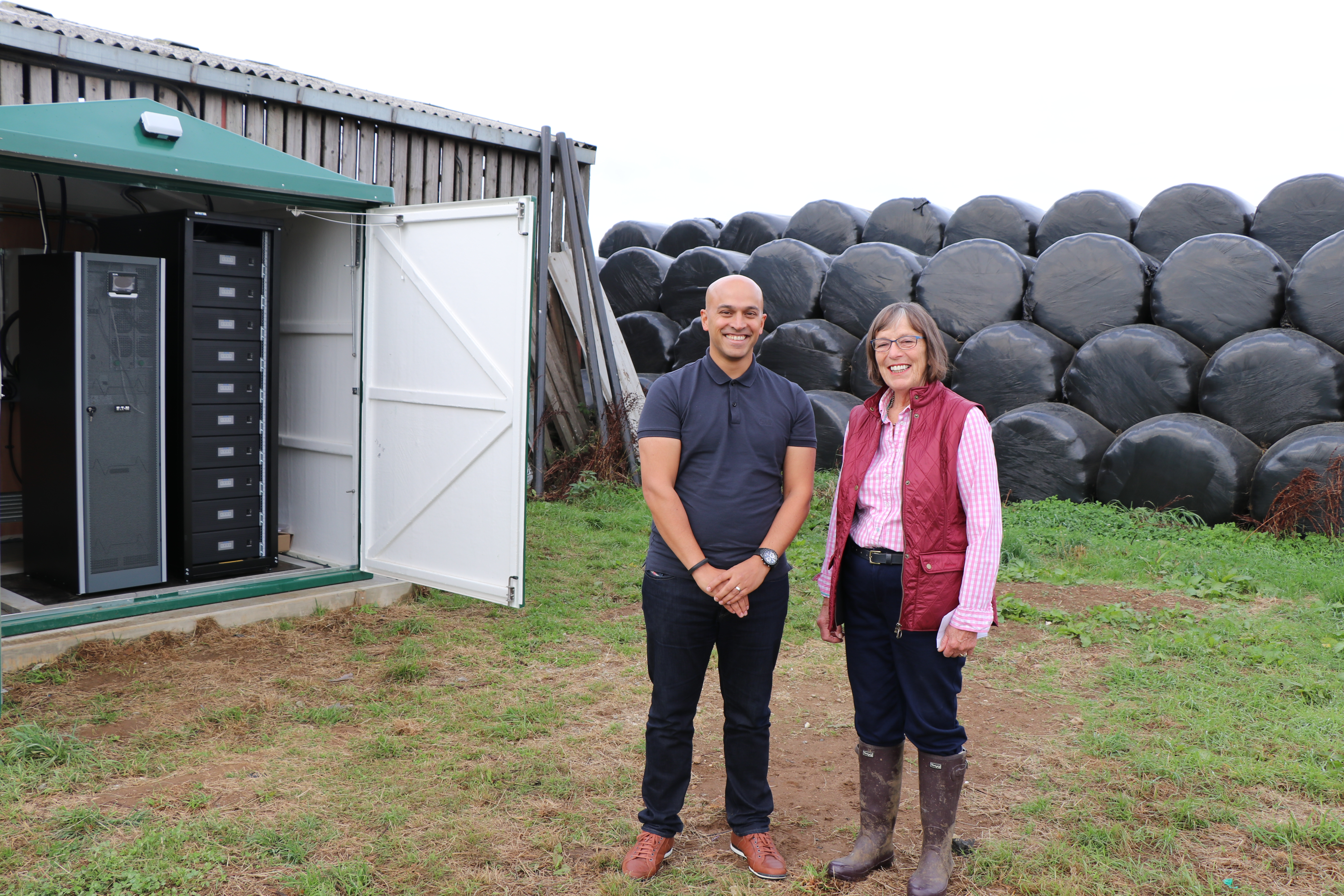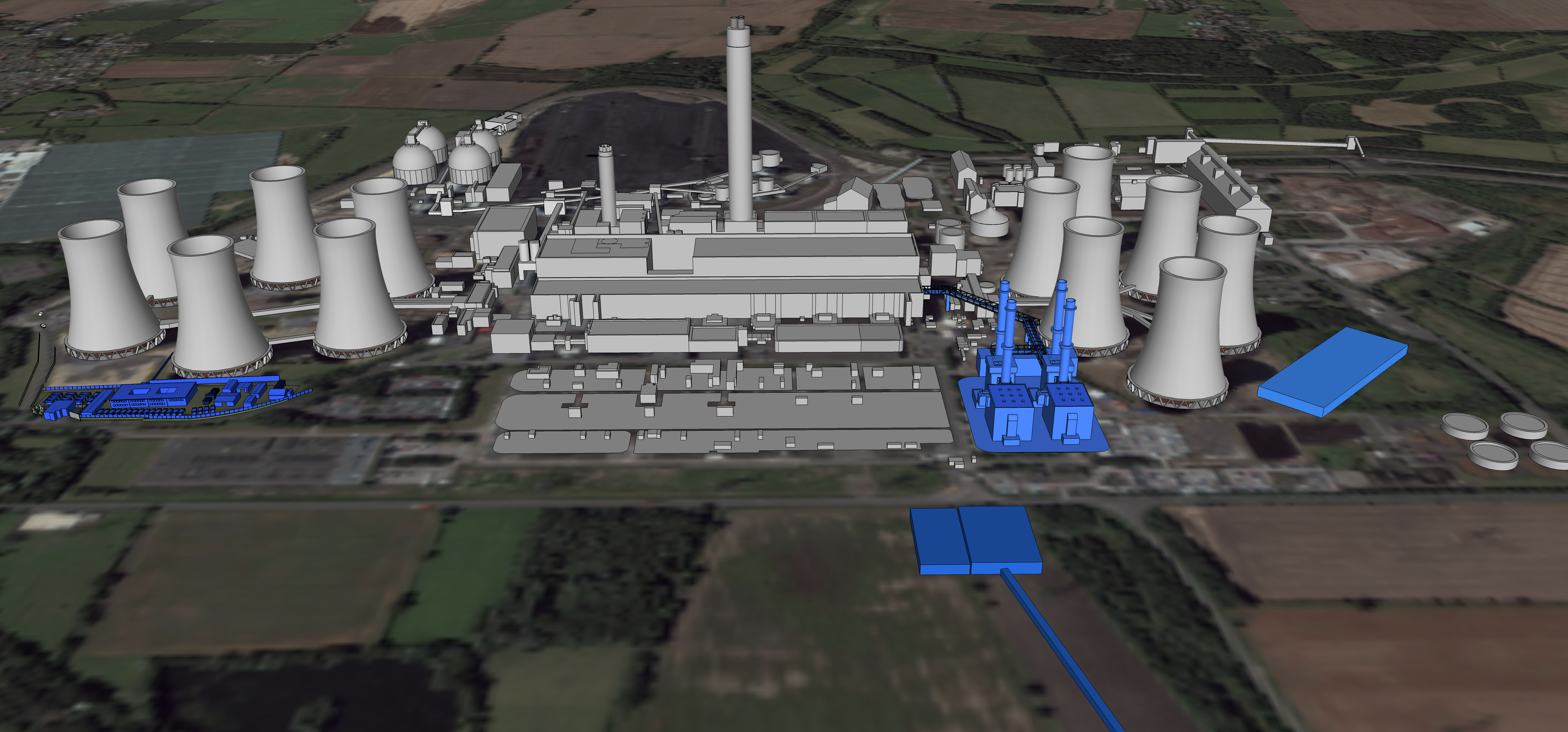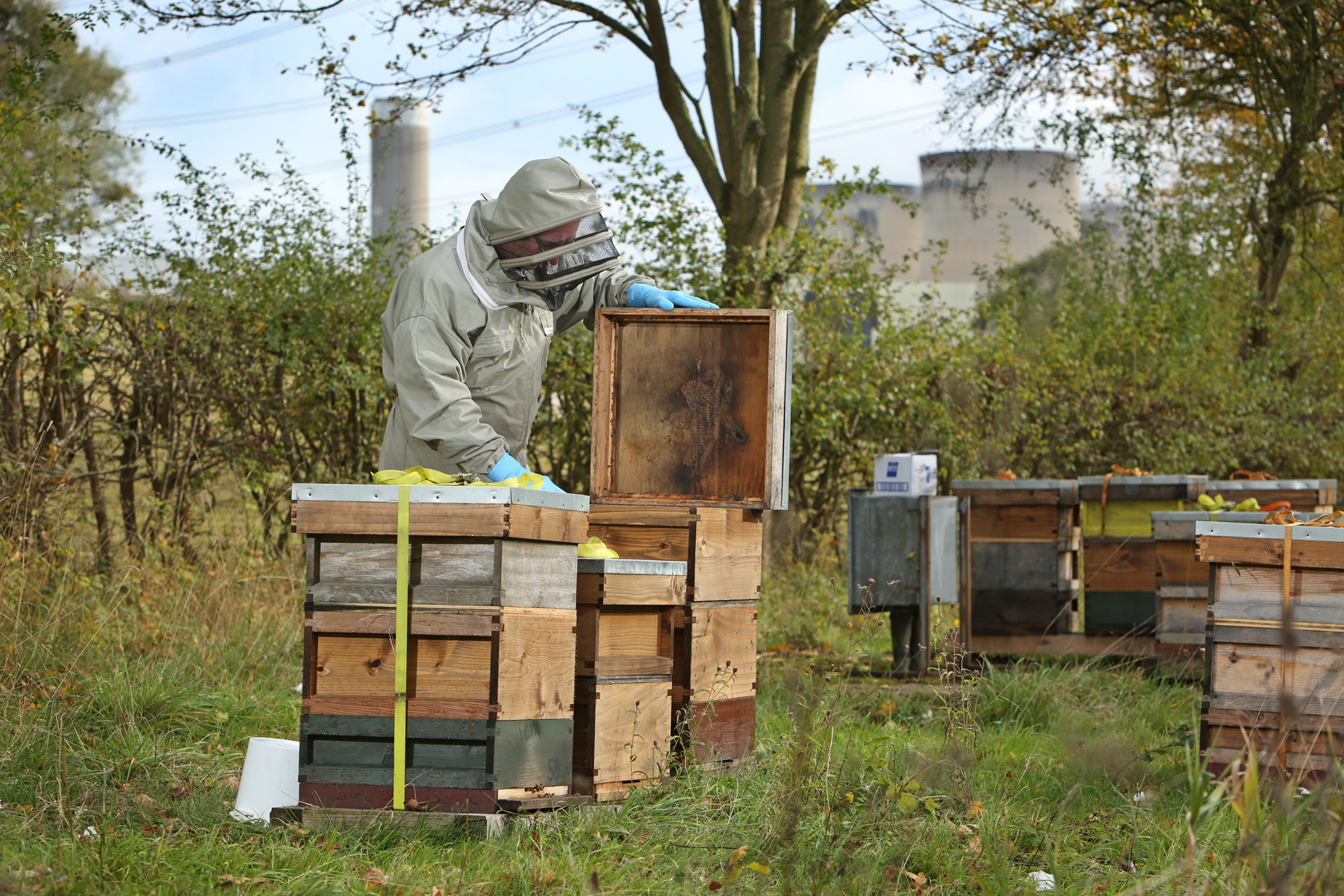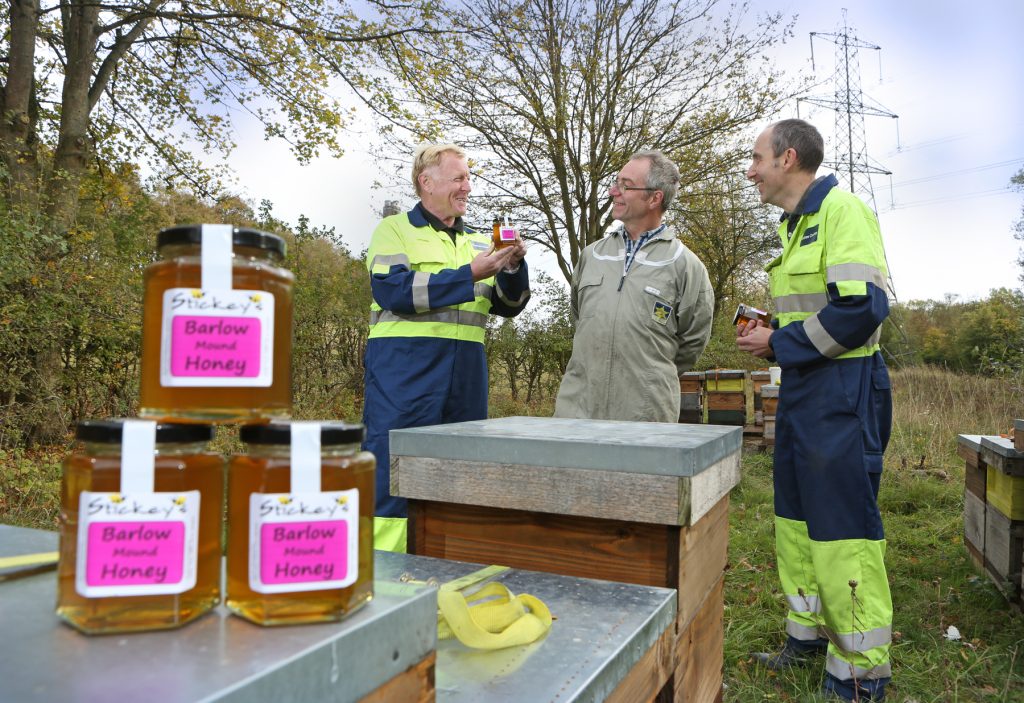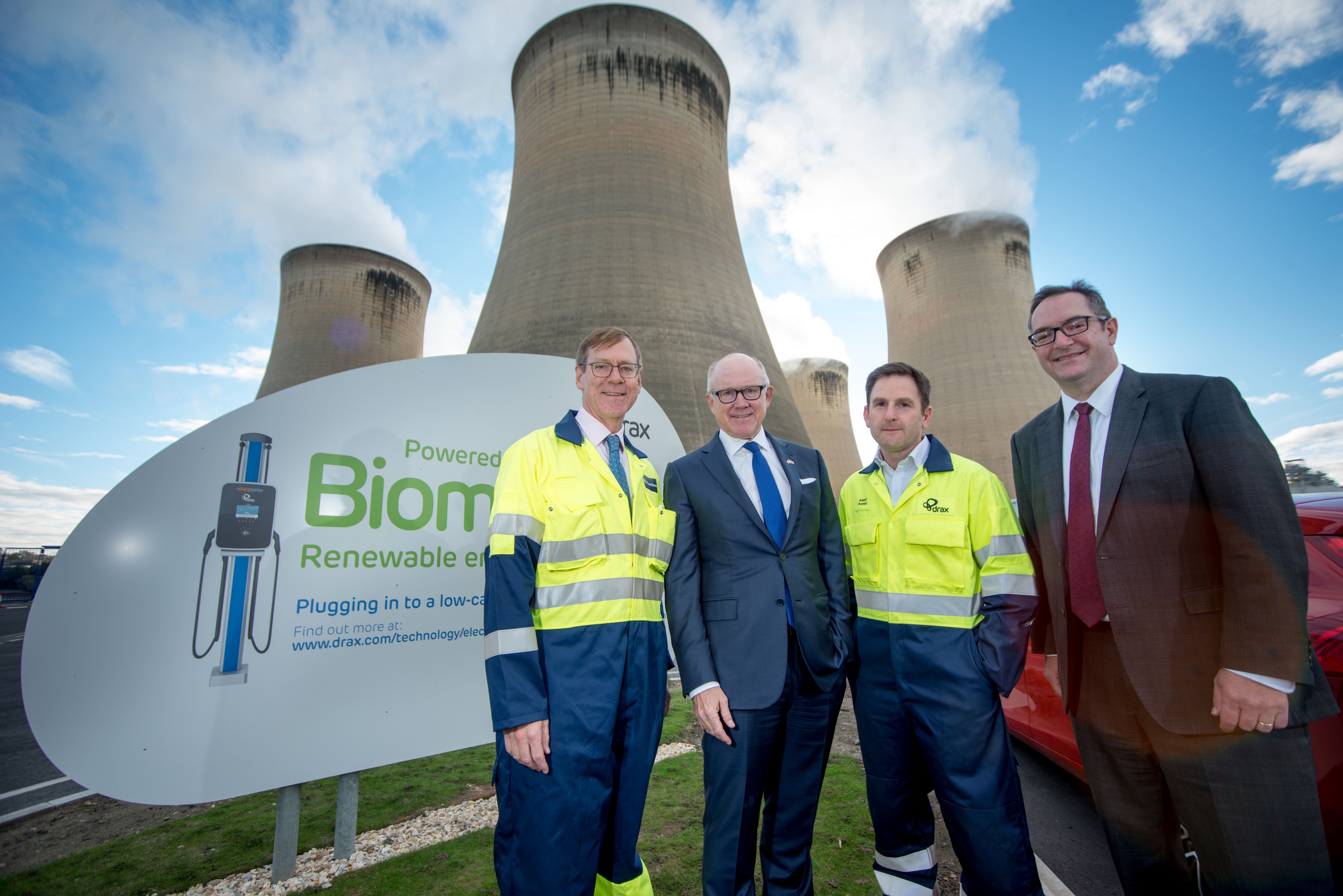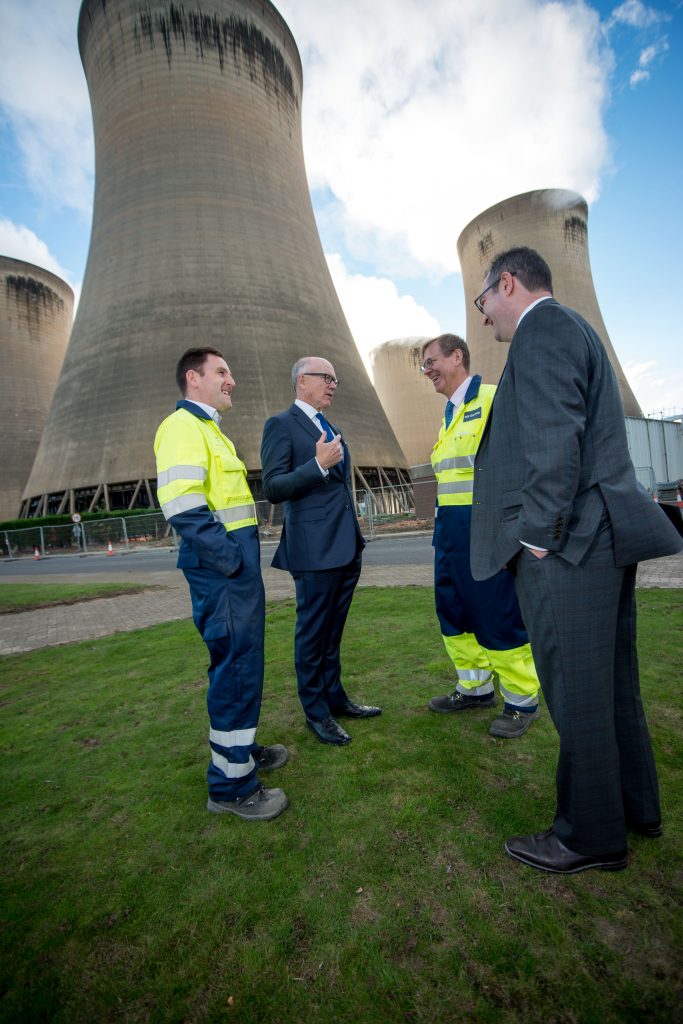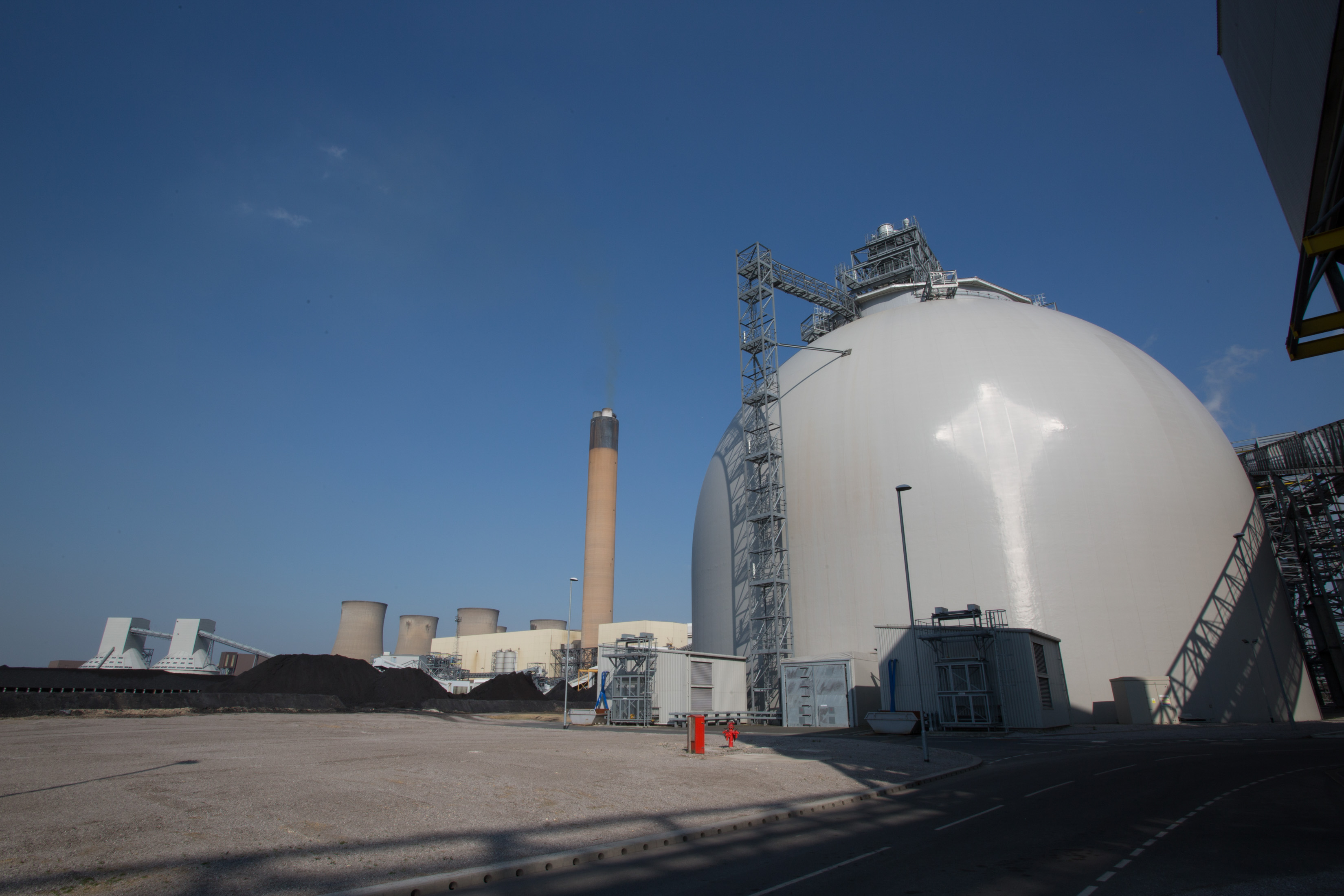
The findings were revealed in analysis by Oxford Economics looking at the economic impact of Drax’s UK operations, which includes Selby-based Drax Power Station. The Power Station, which employs around 900 people and has converted four of its six generating units to use compressed wood pellets, generated 15% of the country’s renewable electricity in 2017 – enough for four million households.
Researchers at Oxford Economics used three measures to calculate Drax’s GDP contribution: the economic activity associated with the day-to-day running of the business; the activity created by the purchase of goods and services from its suppliers; and the wages the company’s employees and suppliers’ employees spend in their local area.
In the past year, Drax Power Station’s activities have supported employment in a wide range of sectors including high-skilled manufacturing of industrial components, engineering and technical machinery, construction, IT, professional business services and transport.
Drax Power CEO, Andy Koss said:
“This new report shows that as well as being of major significance nationally as the country’s biggest renewable power generator, Drax Power Station continues to play a crucial role in supporting the Yorkshire economy.
“Thanks to a sophisticated supply chain that spans both the east and west coasts of the country, Drax supported over 5,700 jobs across the North of England last year, including 3,200 in Yorkshire, and generated £600 million in economic activity. Drax works with hundreds of businesses across the Northern Powerhouse region to ensure millions of UK homes and businesses have the power they need each day.
“The North of England has a rich heritage in providing energy to the rest of the UK. Drax continues to play a vital role in providing the country with flexible, low carbon generation, to support the system as it continues to decarbonise. Our strategy for moving beyond coal is enabling us to preserve the life of the power station, protect jobs and ensure we continue to make an important contribution to the region’s economy.”
The conversion of a fourth generating unit at Drax from coal to biomass helped the UK reach another green milestone this year as the power generating capacity available from renewables surpassed fossil fuels for the first time.
It is also about to start the first bioenergy carbon capture and storage pilot project of its kind in Europe, using technology developed by Leeds University spin-out company C-Capture. If successful, the technology could enable the power produced at Drax to become carbon negative, meaning it helps reduce the carbon dioxide accumulating in the atmosphere. Negative emissions are vital if we are to meet our future climate targets.
Nigel Adams, MP for Selby and Ainsty said,
“Drax is a key economic asset both in Selby and nationwide. As the country’s single largest generator of renewable electricity, the business is a key part of the local community and supports employment and skills in the region. Drax has a rich history but has been keen to look to the future and further ways in which it can continue to innovate, enriching our community.”
Osman Ismail, Senior Economist at Oxford Economics, said:
“Drax Group makes an important economic contribution to Yorkshire and the Humber, and the UK more widely. Its activities generated almost £1.6 billion in GDP last year, and sustained thousands of jobs across the nation.”
ENDS
Full details of the study can be found at draximpact.co.uk
Media contacts:
Ali Lewis
Drax Group Interim Head of Media & PR
E: [email protected]
T: 07712670888
Jessica Gorton
Drax Group Press Officer
E: [email protected]
T: 07712677177
Notes to editors:
- Drax’s acquisition of Scottish Power’s generation assets is expected to complete at the end of the year, subject to shareholder approval.
- Drax recently converted the fourth of its six generating units from coal to use sustainable biomass – around 70% of the power produced at the power station is now renewable.
- It has plans to repower its two remaining coal generating units to use gas, which are being considered by the planning inspectorate. If approved, Drax could stop using coal well ahead of the government’s 2025 deadline.
About Drax
Drax Group plc plays a vital role in helping change the way energy is generated, supplied and used. Its 2,300-strong staff operate across three principal areas of activity – electricity generation, electricity sales to business customers and compressed wood pellet production.
The Group includes:
Drax Power Ltd, which operates the largest power station in the UK, based at Selby, North Yorkshire and supplies six percent of the country’s electricity needs. The energy firm converted from burning coal to become a predominantly biomass-fuelled electricity generator. Drax is the biggest single site renewable generator in the UK and the largest decarbonisation project in Europe.
Haven Power, based in Ipswich, supplies electricity to large Industrial and Commercial sector businesses.
Opus Energy, based in Oxford, Northampton and Cardiff, provides electricity and gas to small and medium sized (SME) businesses.
Drax Biomass, is based in the US and manufactures compressed wood pellets produced from sustainably managed working forests, supplying fuel used by Drax Power Station in North Yorkshire to generate flexible, renewable power for the UK’s homes and businesses.
For more information visit www.drax.com
About Oxford Economics
Oxford Economics was founded in 1981 as a commercial venture with Oxford University’s business college to provide economic forecasting and modelling to UK companies and financial institutions expanding abroad. It is now one of the world’s foremost independent global advisory firms, providing reports, forecasts and analytical tools on 200 countries, 100 industrial sectors and over 3,000 cities. Its best-of-class global economic and industry models and analytical tools give an unparalleled ability to forecast external market trends and assess their economic, social and business impact.
About the study
Oxford Economics assessed the economic benefits of Drax Group using a standard means of analysis, called an economic impact assessment. This approach is applied in each of the three stages of the study.
The full report can be viewed here: https://www.draximpact.co.uk/public/Oxford_Economics-Economic_impact_of_Drax_in_the_UK_2017.pdf








